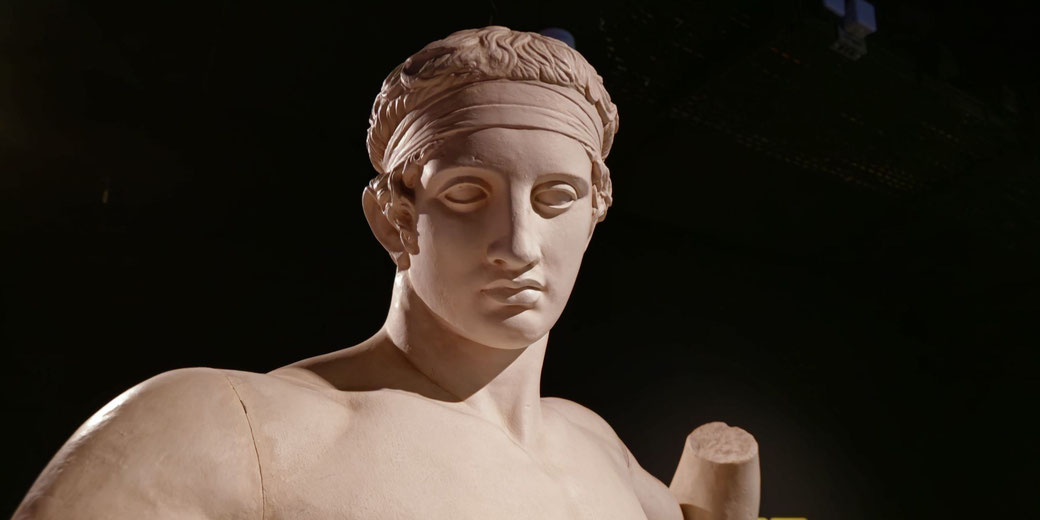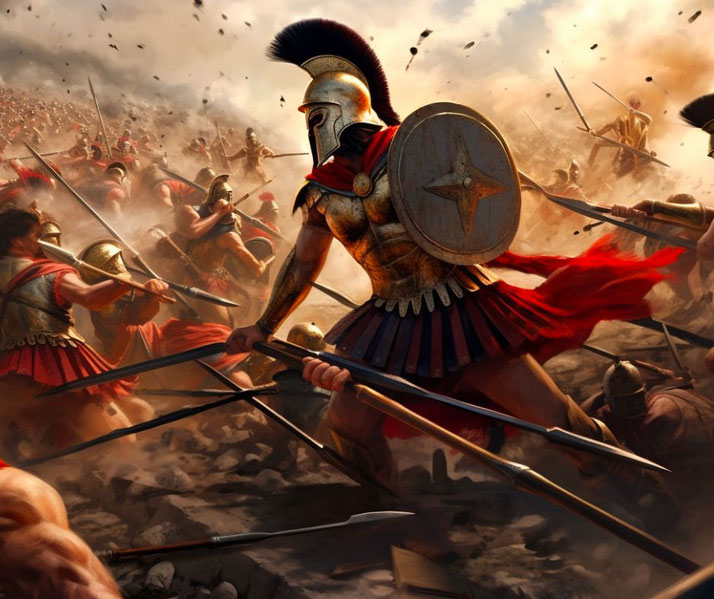An overview of Ancient Greek history

One of the most famous ancient civilisations was created by the Greeks. The ancient Greeks created ideas that are still alive today.
Things like democracy, philosophy, theatre, architecture, and art created over 2000 years ago can be attributed to this civilisation.
However, there was no country called 'Greece' in the ancient world. Instead, the region we call 'Greece' was filled with individual cities who were independent of each other.
We call these cities 'city-states'. Each one had their own form of government, laws and system of military training. Most Greeks were very loyal to their own city.
However, these separate cities were unified by their similar language (Greek) and their similar cultural and religious practices.
The Greeks called themselves the 'Hellenes' and the land we call 'Greece' was called 'Hellas'.
While the modern country of Greece is primarily a mainland country, in ancient times, the Hellenes had city-states included areas in Turkey, North Africa, Italy and even France.
The element that connected all of these regions together was the Mediterranean Sea.
The ancient Greek culture relied heavily on sailing this sea, for trade, military conquest and even exploration.
The Greeks travelled far and wide, sharing their ideas, culture and goods.
Early Greek cultures
Modern scholars believe that the first Greek culture didn't begin on mainland Greece, but on the island of Crete.
The Minoan culture from Crete existed from 2200 BC to around 1450 BC.
The next Greek culture were the Mycenaeans, which did exist on mainland Greece, primarily in the Peloponnesian region.
The Mycenaean culture seems to be focused on warfare and they built their cities far away from the ocean and protected them with thick, high walls.
The legendary story of the Trojan War comes from the Mycenaean period. We only know about this war because it was written down by the ancient Greek poet known as Homer, in a work called The Iliad.
The story shows a particular interest in great deeds in warfare done by god-like heroes such as Achilles and Hector.
This culture ended suddenly around 1200 BC, and Greece entered a period of time known as the Dark Age.
We call it a 'dark' age because very little evidence has survived to tell us what happened and, as such, we are 'left in the dark'.

Classical Greece
The Dark Age ended when archaeological evidence in Greece appeared again around 800 BC.
When these new artefacts appeared, they show that language, art and architecture were thriving again by this time.
This began the period of time known as the 'Classical Age' of ancient Greece.
The first Olympic Games occurred in the middle of the 8th century BC. Then, during the 5th century BC, the most famous Greek city-states, Athens and Sparta, had become so powerful that they successfully defended Greece from several military invasions by the Persian Empire.
The famous battles of Marathon and Thermopylae date from this time.
Following the wars with the Persians, Greece entered about a one-hundred-year period, from around 500 BC to 400 BC, known as the 'Golden Age of Greece'.
This is when the Hellenes were most rich and powerful. Each of the separate Greek city-states competed with each other to be the most influential.
Eventually the two cities mentioned before, Athens and Sparta, went to war with each other to determine who was the most powerful.
This was known as the Peloponnesian War, and almost all of Greece joined in the conflict to support one of these two cities.
Eventually, after almost 30 years, Sparta and its allies won.
Hellenistic Greek History
One hundred years after the end of the Golden Age, the final stage of ancient Greek history began.
Known as the 'Hellenistic Period', it was started by Alexander the Great, who came from Macedonia in northern Greece.
Alexander became king of Macedonia and managed to conquer the rest of Greece.
He then took his armies on a massive journey of conquest, defeating the Persian Empire and even invading India further to the east.
During his conquests, Alexander helped spread the Greek language and culture across many new lands, which shaped many empires even after his death.
The Hellenistic Period of Greek history came to an end when the Romans conquered mainland Greece in the 2nd century BC.
What do you need help with?
Download ready-to-use digital learning resources
Copyright © History Skills 2014-2024.
Contact via email
With the exception of links to external sites, some historical sources and extracts from specific publications, all content on this website is copyrighted by History Skills. This content may not be copied, republished or redistributed without written permission from the website creator. Please use the Contact page to obtain relevant permission.







